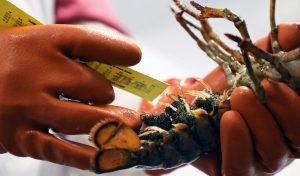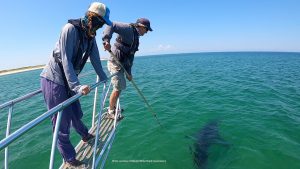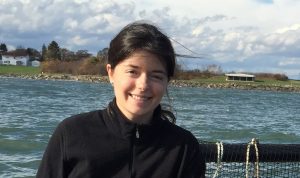Search results for: Call%201800-299-7264%20To%20Book%20%20United%20Airlines%20Basic%20Economy
Helping Communities Lower the Cost of Flood Insurance
Helping Communities Lower the Cost of Flood Insurance March 2018 — Three years ago, Woods Hole Sea Grant and its outreach partner the Cape Cod Cooperative Extension developed a first-of-its-kind program for coordinating regional flood insurance and promoting flood resilience in coastal communities. That program is now serving as a model for others across the…
Read MoreResearch into American Lobster Reproduction
A New Interactive StoryMap Highlights Projects from the Sea Grant American Lobster Initiative A new web-based StoryMap highlights research being conducted by scientists into the reproduction of the American lobster. The scientific studies and the work to communicate about them are part of the American Lobster Initiative of the National Oceanic and Atmospheric Administration’s National…
Read MoreUpdate on River Herring Network
Update on River Herring Network Dec. 2017 — Each spring river herring come from the ocean and swim, or “run” up rivers to spawn in ponds and slow sections of rivers. Each fall, Massachusetts river herring wardens gather together to talk about their favorite fish and discuss ways to preserve it. For centuries, people used…
Read MoreDiseases, Pests, and Predators of Concern to New England Shellfish Growers
Diseases, Pests, and Predators of Concern to New England Shellfish Growers Walton, W. brochures, 2005 WHOI-H-05-002, 003, and 004 Also available as PDF files by clicking on the topic of interest: diseases, pests, predators If you are a shellfish grower, harvester, or resource manager, you are well aware that diseases, pests, and predators are issues…
Read MoreUnderstanding the Rewilding of Cape Cod
Cape Cod’s white shark and gray seal populations have been growing, and with them, so has the desire to understand these changes and impacts on both the ecosystem and our coastline useage. With research funding from WHOI Sea Grant, the Atlantic White Shark Conservancy has developed a middle school level curriculum focused on exploring the…
Read MoreKnauss Profile: Amalia Aruda Almada
Amalia Aruda Almada has long had an interest in the connection between ocean science and public health. As an undergraduate at Georgetown University, Almada had read about the oceanographer and microbiologist Rita Colwell, who was the first scientist to show that freshwater copepods—barely visible …
Read MorePhytO-ARM, An Open-source Platform for Real-time Phytoplankton Monitoring, Data Sharing, and Automated Aquaculture Management
PhytO-ARM, An Open-source Platform for Real-time Phytoplankton Monitoring, Data Sharing, and Automated Aquaculture Management Principal Investigator Michael Brosnahan, Woods Hole Oceanographic Institution Co-Principal Investigators Donald Anderson, Woods Hole Oceanographic Institution, Woods Hole, MA Katherine Hubbard, Florida Fish and Wildlife Conservation Commission-Fish and Wildlife Research Institute, Saint Petersburg, FL Maria Celia Villac, Florida Fish and Wildlife…
Read More


